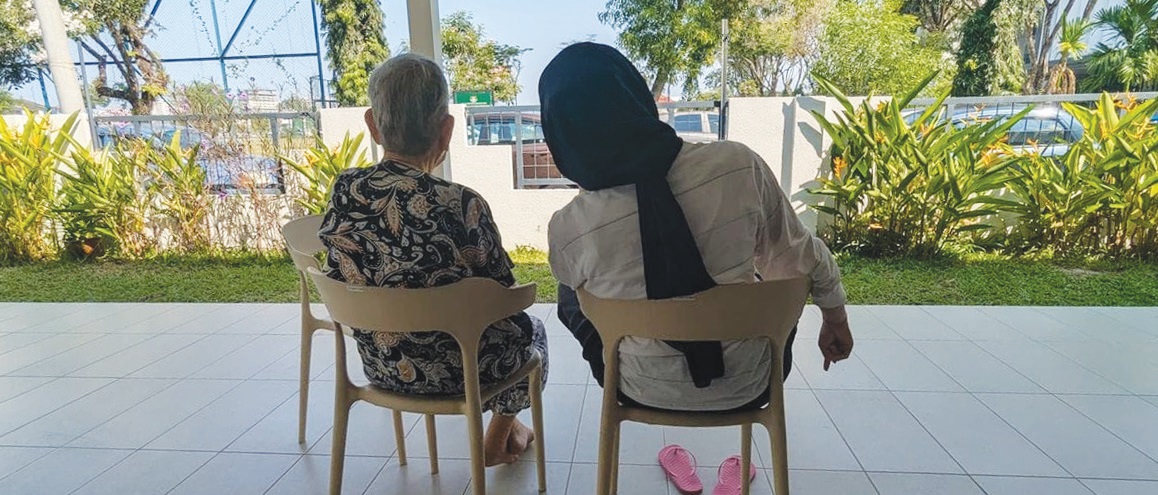The unnecessary burden of proving one’s personhood
It’s a disheartening ritual, one I've personally come to dread. Time and again, I find myself needing to remind audiences, participants in workshops, or during conferences and seminars that individuals living with dementia are, fundamentally, human.
Apr 25, 2025

Dancing with Dementia - Dr Cecilia Chan
It’s a disheartening ritual, one I've personally come to dread. Time and again, I find myself needing to remind audiences, participants in workshops, or during conferences and seminars that individuals living with dementia are, fundamentally, human. They are not the “living dead,” nor are they mere vessels or victims of a disease. They are people deserving of the same basic human rights we all expect: respect, dignity, and compassion. I guess the fact that we need such reminders speaks volumes about the pervasive misconceptions and profoundly deep-seated stigma surrounding dementia. It’s a stark indictment of our society that often prioritises cognitive function over inherent personhood. Why must we continually reassert something so intrinsically obvious?
I am not denying the fact that dementia can be painful and challenging for everyone, but focusing merely on cognitive decline does not negate a person’s emotions, experiences, or inherent worth. People living with dementia continue to feel, to love, to experience joy and sorrow. They retain their unique personalities, histories, and desires. It is up to us, as a community, to uphold that, as dementia does not exist in a vacuum.
I want to tell you about Mary (not her real name), a woman with dementia who attends our daycare centre with her husband. One day, she arrived in soiled pajamas, her demeanour cheerful and oblivious. It was evident she was unaware of her clothing and its inappropriateness for the public. Instead of drawing attention to her situation, we greeted her with warmth and invited her inside. Once she was comfortable, we gently offered a ‘ladies’ trip’ together — a common, casual gesture. She happily accepted, and we were able to discreetly clean and change her, safeguarding her dignity and self-respect. This is something we all can do as a society.
Think about it. What would diminish Mary’s personhood and her social self? Our social self depends on being recognised by other people. How others behave towards us, and talk about us, confirms us in our role as their parent, child, friend, etc. Their behaviour also expresses the value that we have for them in that role.
If we make a big deal out of this matter by pointing out that Mary wore the wrong attire and that she had soiled herself, what do you think the outcome would have been?
Highlighting Mary’s inappropriate attire and soiled state, then rushing her to the restroom for immediate cleanup, would likely have caused significant distress. How would any of us feel if someone were to publicly announce that we had forgotten to zip up our pants? Such public exposure would be akin to announcing someone’s unzipped pants to everyone present — deeply embarrassing and humiliating.
Later that day, Mary was sitting in the corridor, seemingly fixated on the clouds. I sat beside her and asked her what was she staring at. She commented that the sun was melting the clouds and smiled at me, asking me what I saw. I told her that the clouds looked like a garden of roses. “No,” she said. “It is God’s hands reaching out to us,” as she extended her arms out. I was too dumbfounded to say anything. We held hands and stared at the clouds together, savouring the divine’s love for us.
I would have missed this precious moment if I had seen Mary purely as a person who forgot to change her clothes and soiled her clothes because she has dementia. You see, it is really up to us. There is no I without a you, no me without us. We have to realise that we are at each other’s mercy towards the end. So, it makes sense that we should have a more compassionate, unequivocal commitment to everyone and honour each individual out of common humanity, if not out of love. Connection with each other is the deeper understanding that we are all somehow joined by our humanity.
Like Rumi reminds us, “ … after all, we are just walking each other home.”
Dr Cecilia Chan is a Gerontologist and Dementia Advocate and Activist. She can be contacted via WhatsApp (013-4384388).







Total Comments:0